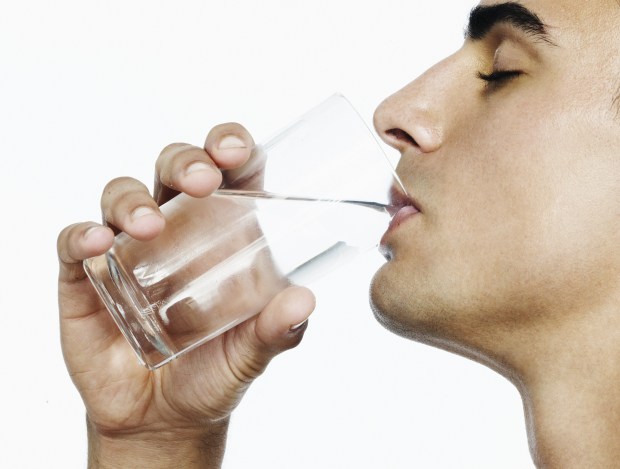Telling sick people to drink plenty of fluids could trigger DEADLY water poisoning, docs warn
Medics have questioned the long-standing advice after treating a 59-year-old woman who had drunk so much water that she became gravely ill

PATIENTS who follow doctors’ orders and “drink plenty of fluids” when they fall ill may actually be putting their life at risk.
Medics have questioned the long-standing advice after treating a 59-year-old woman who had drunk so much water that she became gravely ill.
The woman effectively overdosed on water after developing a repeat occurrence of the urinary tract infection cystitis.
She recalled being told by a doctor previously to drink lots of water - half a pint every 30 minutes.
But she admitted consuming far more on this occasion to “flush out her system”.The woman was admitted to A&E, where doctors found she was suffering from acute hyponatraemia, which is caused by low salt levels in the blood.
It can occur if too much water is drunk over a short period of time. Symptoms include nausea, vomiting and headaches.
In serious cases, the brain can swell, which can lead to confusion, seizures, coma and death.
Tragic teenager Leah Betts died from hyponatraemia in 1995, aged 18, after she took an ecstasy tablet and then drank seven litres of water in 90 minutes.
A death rate of almost 30 per cent has been reported in patients with abnormally low salt levels.
Writing in the journal BMJ Case Reports, doctors described how the unnamed woman got worse.
They wrote: “During her visit to the emergency department, she became progressively shaky and muddled.
“She vomited several times, was tremulous and exhibited significant speech difficulties.”
Doctors were able to save the woman’s life with treatment including restricting her fluid intake to a litre over the next 24 hours.
The harmful effects of increased fluid intake include confusion, vomiting and speech disturbance
But they described another case in which a young woman suffering from gastroenteritis died after consuming too much water.
People who take ecstasy and those taking part in endurance sports are also at risk of acute hyponatraemia.
The doctors said: “We frequently advise our patients to ‘drink plenty of fluids’ and ‘keep well-hydrated’ when they are unwell.
“But, what do we mean by that? Are there potential risks of this apparently harmless advice?
RELATED STORIES
“As demonstrated here, the harmful effects of increased fluid intake include confusion, vomiting and speech disturbance, and potential for catastrophic outcomes due to low blood sodium concentrations.”
They concluded: “There is a paucity of evidence behind the advice to ‘drink plenty of fluids’ in the management of mild infective illness.”
Prof Graham McGeown, Professor of Physiology at Queen’s University Belfast, said: “People with an infection are usually advised to keep drinking to avoid dehydration, which is a risk if people stop drinking because they feel unwell, especially if they have a fever and are sweating.
It is possible to go too far
“Clearly, as this case indicates, it is possible to go too far.
“It seems that the woman concerned took the doctor’s advice too seriously, drinking several litres in a short time and so dangerously diluting her body fluids.
“The ‘cure’, however, was to limit drinking to nearly two pints in 24 hours - and not to stop drinking completely.
“Perhaps the lesson is that doctors need to be more specific in their guidance rather than avoiding advice on drinking in these circumstances.”
Dr Imran Rafi, from the Royal College of GPs, said: “Drinking enough water is important in keeping healthy, both physically and mentally, and patients should keep their fluids up when unwell, particularly in conditions that can cause dehydration.
“We would encourage patients to drink more if they have symptoms of dehydration, such as feeling thirsty - including in hot weather or when exercising - or passing dark-coloured urine.
“There is no steadfast recommendation as to how much water people should drink in order to stay healthy, but the key thing is to keep hydrated – and passing clear urine is a good indication of this.
“This case report highlights that excessive water intake can have important consequences for patients, and this is something that healthcare professionals, and patients, should be mindful of.”









